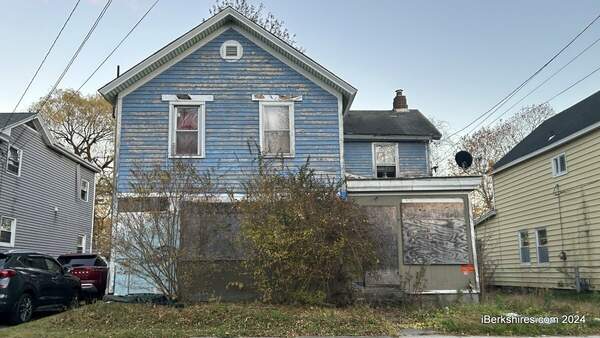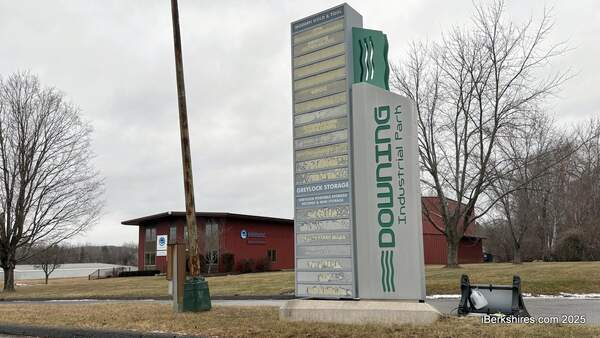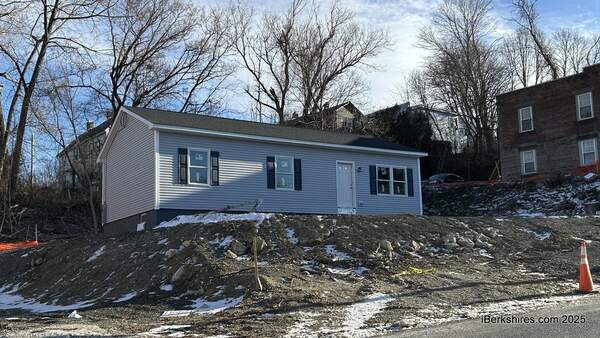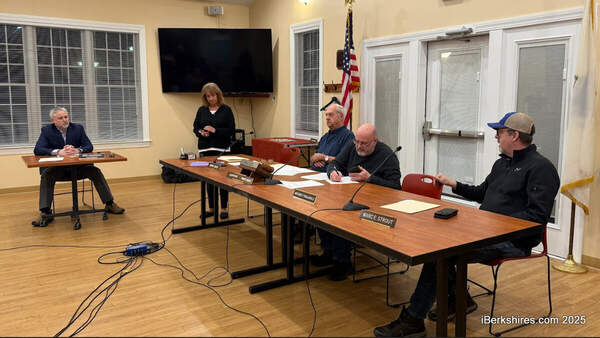Manna Wellness Chooses West Pittsfield Site for Proposed Dispensary
 Manna Wellness' Julia Germaine and Nial DeMena address questions from the public in October. Manna Wellness' Julia Germaine and Nial DeMena address questions from the public in October. |
PITTSFIELD, Mass. — Marijuana dispensary candidate Manna Wellness announced plans on Wednesday to begin building a new facility at a site in the city's western corridor early next year, pending state licensing and local approvals.
Officials of the new local not-for-profit, which first voiced interest in siting a dispensary in Pittsfield last spring, said Wednesday they have finalized a purchase agreement for land on Callahan Drive off West Housatonic Street/ Route 20.
"Extensive review proved the Callahan Drive site ideal: it is accessible via public transportation and situated in an industrial light zone adjacent to successful industrial and commercial enterprises," the nonprofit said in a statement on Wednesday. "Manna's directors have worked closely with Mick Callahan, whose family owns the property, and municipal leadership to coordinate development and ensure suitability since early 2013."
Director of Resources Julia Germaine said the proposed 7,200 square foot building is currently in the schematic phases of design with Boston-based firm Stack & Co, but Manna expects to submit its application for a special permit this month, to be reviewed by the Community Development Board and Zoning Board of Appeals early in the new year.
"We're hoping to break ground in early spring, depending on the weather and the permitting process," Germaine told iBerkshires.
Since under the state law and local ordinance, all cultivation is required to take place on site, Manna anticipates ultimately open to patients following its first harvest, in early 2015.
"Of course, we will not proceed with the purchase of the land or breaking ground until after we hear back from the DPH at the end of January," said Germaine.
Manna aspires to construct an energy-efficient, low-impact facility that will become LEED (Leadership in Energy and Design) certified, a designation through the U.S. Green Building Council.
"No other dispensary in America right now is a LEED-certified green building," according to Nial DeMena, director of operations for the nonprofit.
"Our main motivation for that is to disrupt the industry's historical carbon footprint," added Germaine. "A huge energy draw is often a limiting factor for what facilities can reasonably produce, given the cost of energy to run lights indoors."
"The Callahan Drive site is ideal for photovoltaic collection," according to Germaine, who said in addition to solar, Manna is looking at recently developed technologies adapting sodium ion batteries for grid-scale applications.
In addition to energy-saving technologies, Manna believes other aspects such as accessibility to public transportation would also contribute to the certification process. Over the long term, these savings will also help reduce end costs to patients.
"It's our goal to be able to subsidize certain costs for our patients, because the medical marijuana is certainly not subsidized by their insurance coverage," Germaine stressed.
The location of the proposed dispensary is in a slowly growing commercial business area, adjacent to Ice River Springs and as well as the site of a planned new Dollar General store. Manna had previously indicated its intention to locate about two miles from downtown, at a public question-and-answer forum they held in October.
"Our family is pleased to be associated with this development opportunity in our business park," said Maurice "Mick" Callahan in the statement. "We are impressed with the green building concept that has been generated by the Germaine family and their consultants."
Manna Wellness is one of four Phase 2 dispensary finalists seeking licensing from the state's Department of Public Health to locate in Berkshire County. Another, Total Health and Wellness, received preliminary local approval this week for its plan to reuse a building on the opposite side of the city, while two others, Greenhouse Dispensary and Prospect Lake Inc, are considering sites in Lee and Great Barrington, respectively.
Early indications, however, have been that only one may be granted licensing for this county, given its population density compared to other counties in the Commonwealth.
"The DPH has suggested that they're not going to group dispensaries in the same areas," Germaine acknowledged, "It's really important that patients all over the state are able to access it."
The DPH's final decision is expected to be released by Jan. 31, and any approvals already given at the local level will be contingent on that licensing authorization, with the department to inspect and monitor the dispensaries on an ongoing basis.
Tags: DPH, LEED, medical marijuana,
















